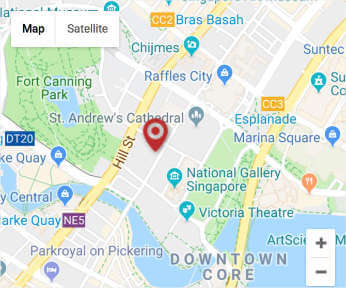Are you eligible for Overseas Vendor Registration(OVR)?

All You need to know about Overseas Vendor Registration
OVR stands for Overseas Vendor Registration – a law that requires overseas vendors or suppliers who are supplying imported digital services to individuals or businesses to be registered under GST in Singapore. The Government of Singapore made this rule effective from January 1st, 2020 to create equality between local and overseas services and to provide a level playing field for all suppliers.
Context of OVR in GST
From January 1st 2020, imported services are taxed as follows:
- Reverse charge to be applicable for B2B(Business to Business) supplies of imported services;
- Overseas vendor registration is needed for B2C(Business to Consumer) supplies of imported digital services.
| B2B Supplies | B2C Supplies |
|---|---|
| Supplies made to GST-registered entities including companies, partnership firms, and sole proprietors. | Supplies made to non-GST registered entities such as individuals and businesses that are not registered for GST. |
What is RC(Reverse Charge) for B2B imported services?
RC or Reverse Charge is a tax that’s applicable for
- Registered GST business
- Non-GST registered business
For Registered GST Business
The company may be a GST-registered
- Partially exempt business not entitled to full input tax credit; or
- Voluntary organization or a charity that accepts non-business receipts
From January 1st, 2020, the company needs to account for GST on all services procured from overseas (outside Singapore) suppliers (referred to as imported services) considering itself as the supplier, except for those services specifically exempt from the scope of RC. That means the company also becomes eligible to claim the corresponding GST as its input tax, subject to the regular input tax recovery rules.
For non-GST Registered Business
As per the new GST registration rules from January 1st, 2020, you may become eligible for GST registration if
- The total value of the imported services exceeds $1 million for 12 months
- And the company is not entitled to full input tax credit even if you were GST-registered
What is RC (Reverse Charge) for B2B import of low-value goods?
For a GST-Registered Business
Reverse Charge (RC) refers to the charge applicable on imported low-value goods for B2B transactions.
From January 1st, 2023, a GST-registered business that’s subject to RC needs to perform reverse charge on low-value goods purchased from local suppliers and overseas suppliers along with electronic marketplace operators and redeliverers (who are delivering after getting delivery from other suppliers) – whether they are GST-registered or not. Such a business will be entitled to claim the corresponding GST as their input tax based on regular input tax recovery rules.
What Are Low-Value Goods?
The Inland Revenue Authority of Singapore (IRAS) defines low-value goods which at the point of sale:
- Were not subject to duty or may be subject to duty but were exempt from the duty as per Section 11 of the Customs Act;
- Are not exempt from GST;
- Are kept outside Singapore and have to be delivered to any part of Singapore via air or post; and
- Whose value does not exceed the GST import relief threshold of S$400.
Here, the “point of sale” stands for the time at which an order confirmation is issued by the OVR vendor or any such time as agreed with the Comptroller.
For a Non-GST Registered Business
The IRAS states, “From 1 Jan 2023, if the total value of the imported services and low-value goods for a 12-month period exceeds S$1 million, the company would not be entitled to full input tax credit even if it was GST-registered. It may become liable for GST-registration under the new GST registration rules.”
Once a business is registered for GST, it will be levied GST on its taxable supplies, imported services, and low-value goods subject to reverse charge.
What is Overseas Vendor Registration?
OVR is applicable for cross-border suppliers of imported digital services. The rule came into effect on January 1 2020 for overseas Business-to-Customer (B2C) supplies. Digital services refer to all those services that are made available via the internet or an electronic network and whose supply is automated. That means such services require almost zero human intervention and cannot be made available without information technology.
Digital services may include
- Digital products
- Subscription-based content or products
- Licensed content
- Support services via the internet
Examples of digital services
- Games and gaming apps
- E-books
- Cloud-based software and/or services like accounting software
- content /information websites
- Music/video streaming services
Who is OVR applicable for?
The OVR regime includes all those suppliers
- Which do not belong to Singapore
- Have a global turnover crossing S$1 million
- Whose B2C supply of digital services to customers in Singapore cross S$100,000
What do such suppliers need to do?
- Register for GST
- Charge and account for GST as per a simplified pay-only regime every quarter
Rules for an electronic marketplace operator
A local operator or an overseas operator of an electronic marketplace may be considered as the supplier of digital services when such services are supplied by the overseas suppliers through this operator’s marketplace. This new rule came into effect on January 1 2020 and is applicable under certain conditions.
In such a case, such an operator needs to disclose the value of such services for determining a GST liability. If it is liable for GST registration or has already registered for it, it is required to charge and account for GST on B2C supply of digital services on its marketplace to customers living in Singapore on behalf of its overseas suppliers along with the digital services that are being supplied to Singapore customers directly.
The IRAS states that for easing the compliance burden, the company will be registered under a simplified regime with reduced registration and reporting requirements if it is an overseas operator.
Rules for GST-registered businesses buying digital services from GST-registered overseas vendors
If a GST-registered business purchases digital services from a GST-registered overseas vendor, such a business should provide its GST registration number to this vendor to be NOT charged GST on business purchases of digital services. However, if it is a reverse charge business, it needs to account for GST on the imported digital services by way of reverse charge.
Check the MyTax portal to see if your service provider is registered under GST.
New Rules From January 1, 2023
The Minister for Finance Heng Swee Keat made new announcements during Budget 2021 about GST. Some of his major announcements included:
- GST will be now levied on goods imported via air or post, whose value is up to (and including) the current GST import relief threshold of S$400
- GST will be extended to B2C imported non-digital services
The above rules will come into effect from January 1, 2023 through the OVR regime. That means all those digital services that fall under the GST will remain taxable under the extended OVR regime. As a result, all the B2C supplies of imported overseas or remote services – digital or not – will be taxed by way of the extended OVR regime.
As per the definition of remote services under the new rule, services are any service performed regardless of the connection between the physical location of the recipient and the place of physical performance.
The IRAS has ruled –
“If you are a supplier of remote services which belong outside Singapore, you will be required to register for GST in Singapore if the company:
- Have an annual global turnover exceeding $1 million; and
- Make B2C supplies of remote services to customers in Singapore exceeding $100,000.”
For An Electronic Marketplace Operator
A business is considered as the supplier of the remote services provided by an overseas supplier through this business’ marketplace. In such a case, it has to include the value of these remote services to determine its GST registration liability.
“If the company is liable for GST registration or are already GST-registered, it is required to charge and account for GST on B2C supplies of remote services made through its marketplace to customers in Singapore on behalf of the overseas suppliers, in addition to remote services made by the company directly to customers in Singapore.” [Source: IRAS]
Preparing for OVR: How to Determine Eligibility?
If the company is an overseas operator selling digital services to Singapore customers, it’s vital to first assess whether the services fall within the scope of the OVR regime. Once the eligibility is determined, the company needs to review its customer base for determining the total value of digital services supplied to Singapore customers. The company is required to check whether the customers are GST registered by requesting the GST registration numbers. This can easily be cross-checked through the IRAS website.
However, the IRAS has also sent a communication to overseas companies that may be potentially liable for GST/OVR.
To read more about Overseas Vendor Registration, visit
GST: Taxing imported services by way of an overseas vendor registration regime
Photo by Anete Lusina on Pexels
Our Services
Call us now
Corporate Secretarial /
Accounting / Tax
+65 6334-8791
(8.30am-5.30pm, Mon-Fri)
+65 9863-1270
(after office hour)
Fax
+65 6334-8075
Email
enquiry@jdt.com.sg
Address
1 Coleman Street
#05-05 The Adelphi
Singapore 179803

